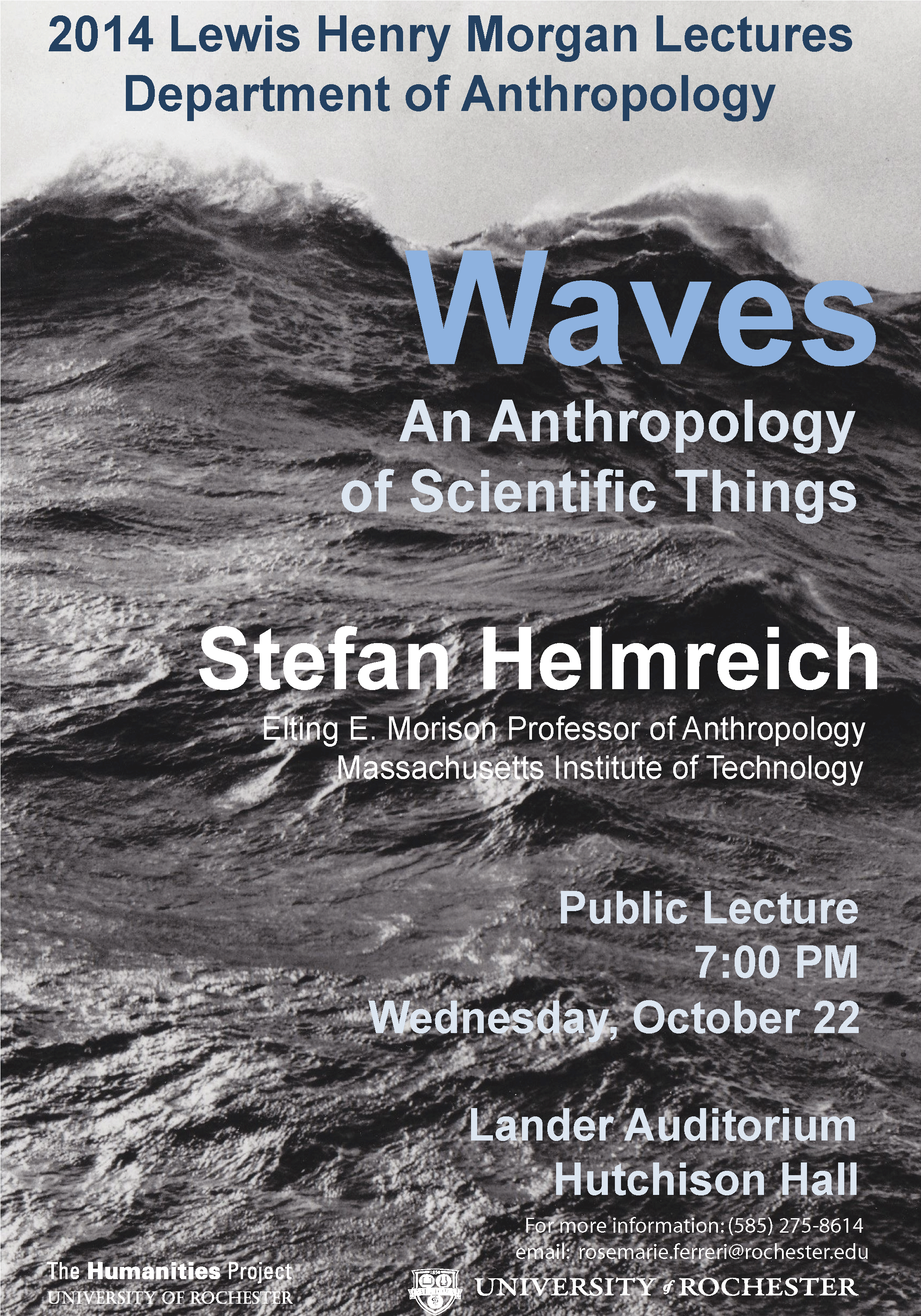Waves: An anthropology of scientific things
The Lewis Henry Morgan Lecture Series
University of Rochester, 2014
Stefan Helmreich

The 2014 Morgan Lecture reports on an ongoing multi-sited, multi-method ethnographic project investigating wave science—the study of periodic, oscillating, and undulating phenomena—in different fields, from cosmology, to biology, to oceanography, to sport, to social science. Fixing on waves as scientific things—amalgams of the formally described and materially instantiated, of the conceptual and empirical—the project examines how scientists apprehend and model waves as entities that cross the boundaries of the human and the ahuman, the agentive and the overdetermined, and the cultural and the natural. What waves are taken to be—their ontology—is in transformation as novel scientific modes of measurement, inscription, and description bring them into legibility. This Lecture centers on the story of ocean wave science, ethnographically reporting on how scientists think about whether seawater waves (canonically imagined as not evolving, not decaying, but simply repeating) may be transforming in synchrony with the geological, social, and economic epoch that some scholars in atmospheric chemistry, geology, history, philosophy, and anthropology are coming to call the Anthropocene. The Lecture puts the notion of the Anthropocene under analytic pressure, particularly by attending to the politics of how ocean waves are modeled and known in the northern and southern hemispheres. It concludes with a discussion of wave science as a kind of anthropology by other means.
For the second installment of the multimedia feature of the HAU-Morgan Lectures Initative brings you Professor Helmreich's 2014 Morgan Lectures in video format. See below for the transcript of the lectures.
DOWNLOAD TRANSCRIPT OF THE LECTURE HERE
DOWNLOAD SLIDES OF THE LECTURE HERE
Stefan Helmreich is Elting E. Morison Professor and Head of Anthropology at the Massachusetts Institute of Technology. His research examines the works and lives of scientists (biologists, oceanographers, acousticians) thinking through the limits of such categories as “life,” “water,” and “sound.” He is the author of Alien ocean: Anthropological voyages in microbial seas (University of California Press, 2009), winner of the 2010 Senior Book Prize from the American Ethnological Society, the 2010 Gregory Bateson Book Prize from Society for Cultural Anthropology, and the 2012 Rachel Carson Book Prize from the Society for Social Studies of Science. An earlier book, Silicon second nature: Culturing artificial life in a digital world (University of California Press, 1998) won the 2000 Diana Forsythe Book Prize from the American Anthropological Association. Sounding the limits of life: Essays in the anthropology of biology and beyond is forthcoming in 2015 with Princeton University Press.
THE HAU-MORGAN LECTURES INITIATIVE
A HAU AND UNIVERSITY OF ROCHESTER COLLABORATION


